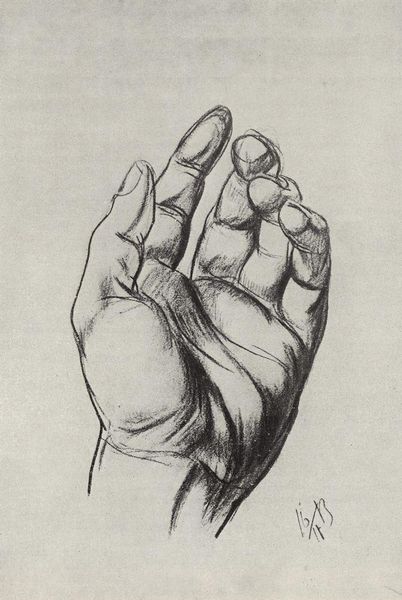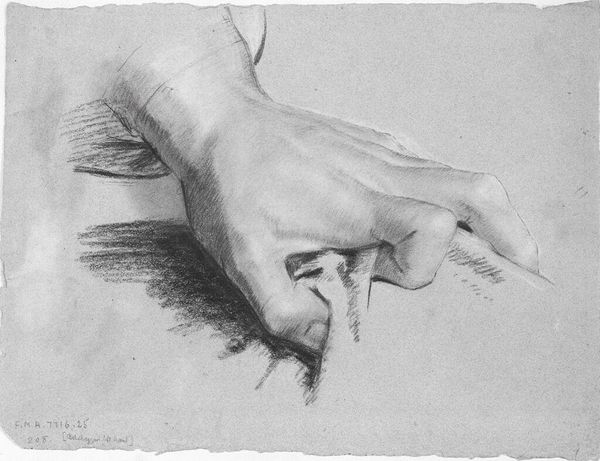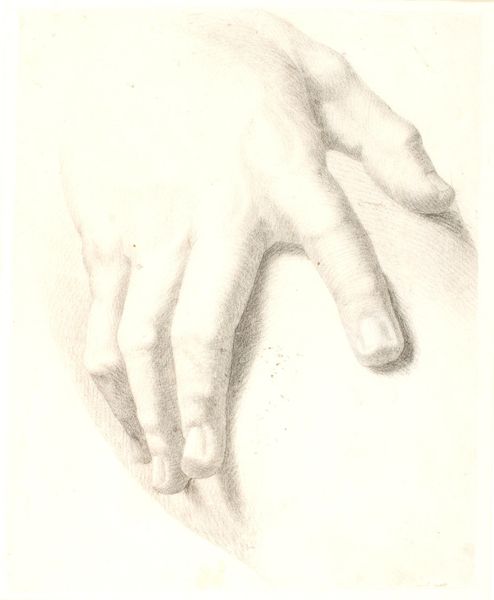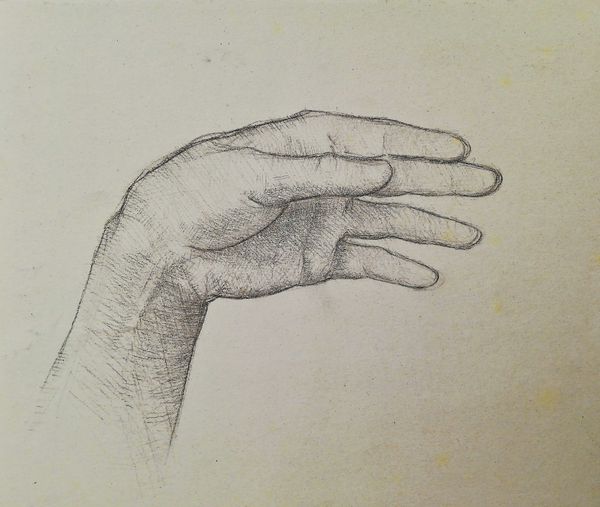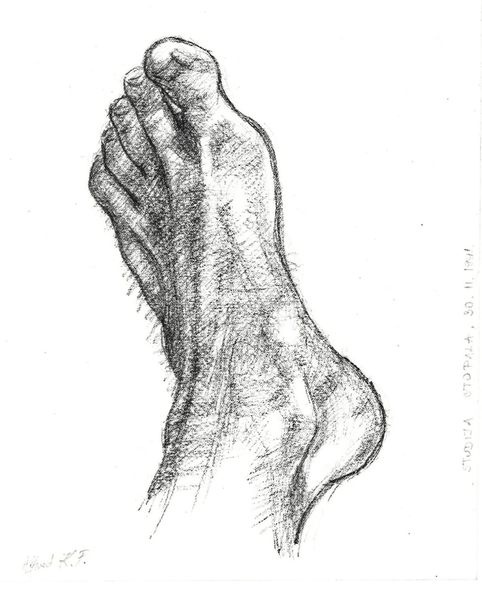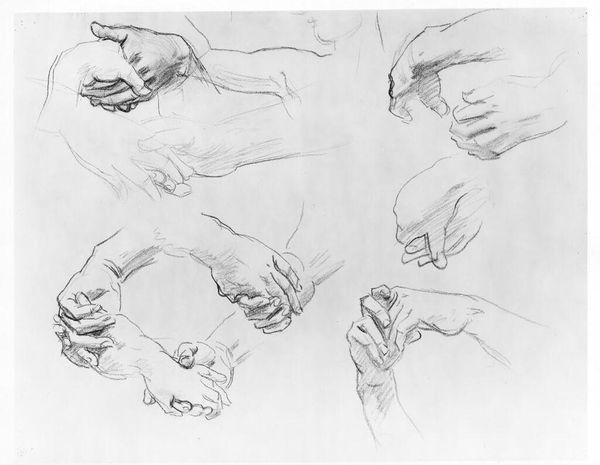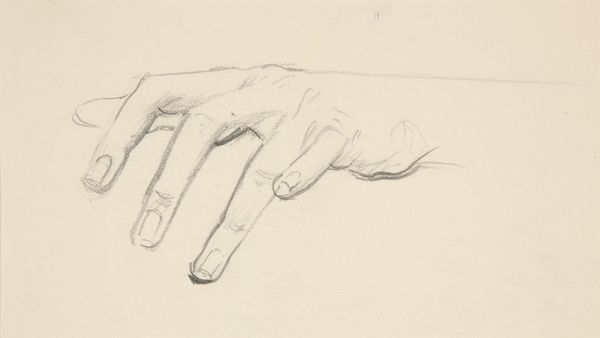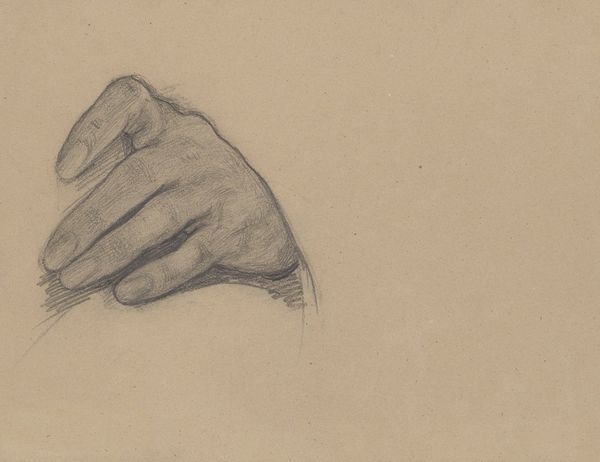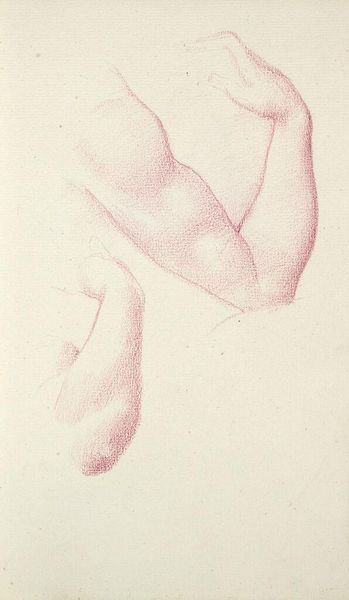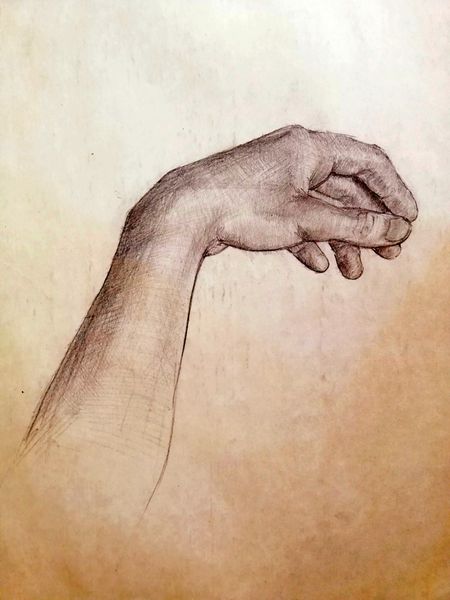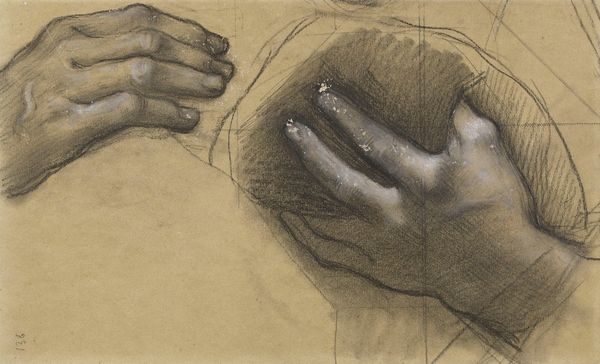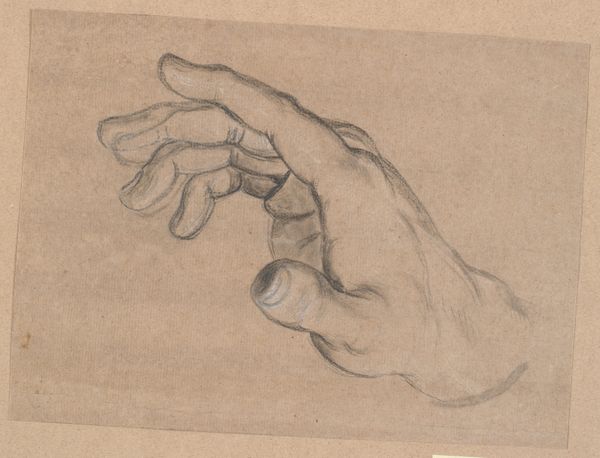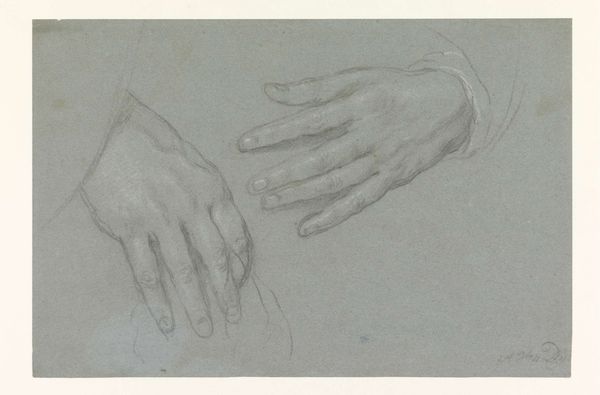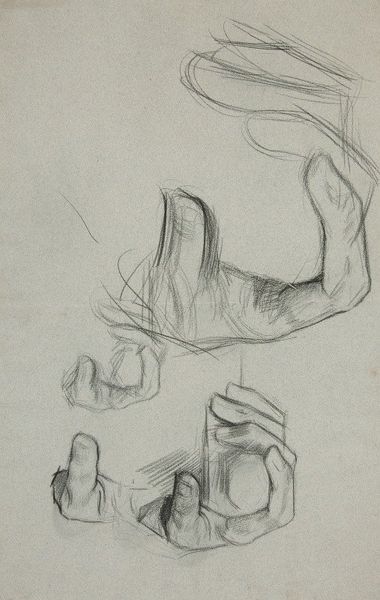
drawing, pencil, graphite
#
drawing
#
amateur sketch
#
thin stroke sketch
#
shading to add clarity
#
pencil sketch
#
incomplete sketchy
#
portrait reference
#
sketch
#
pencil
#
thin linework
#
limited contrast and shading
#
graphite
#
portrait drawing
#
initial sketch
Dimensions: 24 x 27 cm
Copyright: Creative Commons NonCommercial
Editor: So, here we have "The study of the hand (Maribor, 14.03.1991)", a graphite drawing from 1991 by Alfred Freddy Krupa. It feels very intimate, like a personal observation. What symbolic weight do you think a simple hand study like this can carry? Curator: Hands, throughout art history, are powerful conveyors of meaning. Consider the "Hand of God" bestowing blessings, or hands clasped in agreement, or even raised in supplication. But this hand, rendered in such a simple, almost clinical style, evokes a sense of... vulnerability, perhaps? Look at the light shading; it adds clarity, yes, but it also leaves the hand open, exposed. Does the location, Maribor in 1991, resonate at all when you view the artwork? Editor: Maribor... that's Slovenia, right? 1991, wouldn't that be around the time of the breakup of Yugoslavia? Could the hand represent fragility and maybe resilience during a period of political uncertainty? Curator: Precisely. Think about the act of drawing, too. The hand, representing the artist’s literal tool, depicting…itself. It's a self-referential image that invites speculation on the artist's own role during this tumultuous era. It suggests identity being made, shaped, or even fractured, just like Yugoslavia was. What impression do you get from the open palm and extended fingers? Editor: Hmmm. It’s almost reaching, maybe seeking connection or… something to hold onto during all that change? Curator: Yes, I see that too. It speaks of yearning and need in uncertain times. These anatomical studies become symbols for both personal and political states. Editor: I had no idea such a seemingly simple sketch could be so layered with meaning. Curator: The beauty of art is its ability to hold multiple truths, especially when considering the context in which it was created. Visual imagery speaks volumes in all eras.
Comments
No comments
Be the first to comment and join the conversation on the ultimate creative platform.
